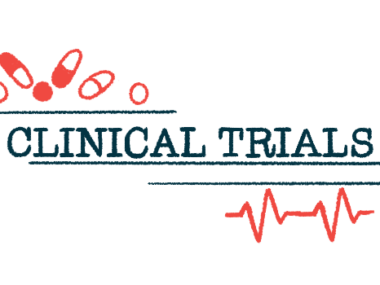Zetomipzomib brings steroid-sparing remission in autoimmune hepatitis
Top-line PORTOLA results show Kezar's candidate therapy was well tolerated
Written by |

Six months of treatment with Kezar Life Sciences‘ candidate zetomipzomib led to biochemical disease remission for adults with treatment-resistant autoimmune hepatitis, enabling them to use lower doses of standard steroids or stop them entirely.
That’s according to top-line results from the Phase 2a PORTOLA clinical trial (NCT05569759), which also showed the therapy was well tolerated and had no serious treatment-related side effects.
“We are pleased to announce these exciting results from the PORTOLA trial,” Chris Kirk, PhD, CEO and co-founder of Kezar, said in a company press release. “We are encouraged by the safety and efficacy data in this difficult-to-treat patient population, specifically durable and steroid-sparing remissions experienced by patients treated with zetomipzomib.”
Kezar hopes the data will encourage the U.S. Food and Drug Administration (FDA) to lift a partial clinical hold it placed on the study last year.
The agency placed a full hold on a trial testing zetomipzomib in people with lupus in October after four people in the study died. Shortly thereafter, an independent data monitoring committee recommended that PORTOLA proceed as planned, based on available safety data, but the FDA placed it on a partial hold to ensure participant safety.
Under the hold, the four participants who were still in the placebo-controlled part could complete it, but wouldn’t be allowed to enter its open-label extension (OLE). The remaining OLE participants could continue, but had to at least remain on a low steroid dose.
“We are eager to work with the FDA … to remove the partial clinical hold and align on an appropriate trial design to demonstrate the clinical benefit of zetomipzomib in AIH [autoimmune hepatitis],” Kirk said.
How does zetomipzomib work in hepatitis?
Hepatitis, a broad term referring to liver inflammation, is most commonly caused by viral infections. However, in autoimmune hepatitis, liver inflammation occurs when the immune system wrongly launches an inflammatory attack on healthy liver tissue.
The standard hepatitis treatment typically involves corticosteroids, a class of potent anti-inflammatory medications. Not all patients achieve adequate disease control and using them long term can cause serious side effects, however.
Zetomipzomib, formerly KZR-616, suppresses the activity of the immunoproteasome, a protein complex that plays a key role in immune responses and which is overactive in a number of autoimmune diseases. By blocking it, zetomipzomib, administered via injections under the skin, seeks to suppress the inflammatory pathways that drive such diseases, including autoimmune hepatitis.
The two-part PORTOLA trial enrolled 24 adults with autoimmune hepatitis who weren’t responding sufficiently to standard corticosteroid treatment or who’d relapsed. In its first part, participants were randomly assigned to 60 mg of zetomipzomib or a placebo for 24 weeks for about six months. All were on corticosteroids (20-40 mg prednisone or equivalent per day), with the goal being to taper them to 5 mg/day or less.
While the trial wasn’t powered to detect statistically significant differences between the two groups regarding efficacy, the main efficacy goal was to evaluate the proportion of patients who achieved a complete biochemical response (CR) without the need for a steroid dose increase. CR was defined as a normalization of certain liver damage markers and antibody levels.
Results of PORTOLA study
This goal was met by a greater proportion of zetomipzomib-treated patients relative to those on the placebo after six months (50% vs. 37.5%). Moreover, 31.3% of zetomipzomib-treated participants achieved CR with a steroid dose tapered to 5 mg/day or less compared with 12.5% of those in the placebo group. Three zetomipzomib-treated patients (18.8%) achieved both CR and complete steroid withdrawal, while no person in the placebo group achieved this.
Those completing the placebo-controlled part could enter the trial’s OLE, where all are receiving zetomipzomib for 24 weeks. This will represent a year of treatment for those originally assigned zetomipzomib.
Data spanning both the placebo-controlled part and the ongoing OLE showed that, among zetomipzomib-treated participants who achieved a CR, responses had been sustained for a median of 27.6 weeks, or a little over six months. There were no reports of disease flares, where liver damage markers rise and steroids doses need to be increased.
Similar therapeutic benefits were seen in the subgroup of 21 participants who were on corticosteroids before enrollment. There, CR with steroid tapering was achieved by 35.7% of those on zetomipzomib, and CR and complete steroid discontinuation by 21.4%, while no patient in the placebo group attained these outcomes.
The treatment had a favorable safety profile, with injection-related reactions being the most commonly reported adverse events. No serious adverse events were considered related to zetomipzomib.
“I am impressed by the totality of efficacy and safety data from the PORTOLA study,” said Gideon Hirschfield, PhD, of the University of Toronto and Toronto General Hospital. “Zetomipzomib represents a potent and targeted therapy for patients, and I believe these results will positively contribute to the design of a registrational trial of zetomipzomib in AIH, where patients are in need of better treatment options.”



